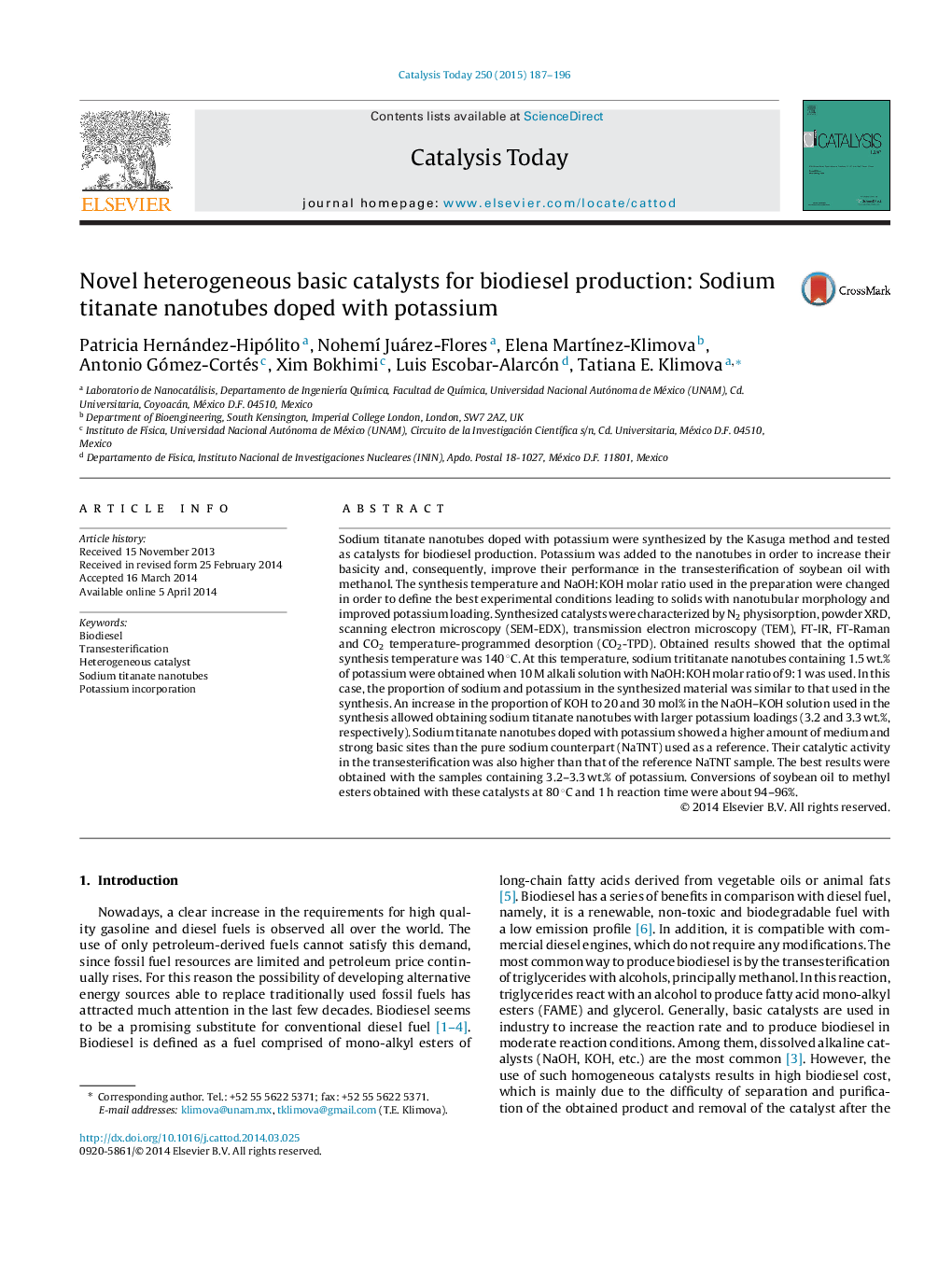| Article ID | Journal | Published Year | Pages | File Type |
|---|---|---|---|---|
| 53931 | Catalysis Today | 2015 | 10 Pages |
•Synthesis of sodium titanate nanotubes doped with potassium by the Kasuga method.•Optimal synthesis conditions for sodium titanate nanotubes doped with potassium.•Incorporation of potassium increases basic strength of sodium titanate nanotubes.•Potassium-doped titanate nanotubes show high activity in the transesterification.•High biodiesel yields (94–96% at 1 h) obtained with titanate nanotubes doped with K.
Sodium titanate nanotubes doped with potassium were synthesized by the Kasuga method and tested as catalysts for biodiesel production. Potassium was added to the nanotubes in order to increase their basicity and, consequently, improve their performance in the transesterification of soybean oil with methanol. The synthesis temperature and NaOH:KOH molar ratio used in the preparation were changed in order to define the best experimental conditions leading to solids with nanotubular morphology and improved potassium loading. Synthesized catalysts were characterized by N2 physisorption, powder XRD, scanning electron microscopy (SEM-EDX), transmission electron microscopy (TEM), FT-IR, FT-Raman and CO2 temperature-programmed desorption (CO2-TPD). Obtained results showed that the optimal synthesis temperature was 140 ̊C. At this temperature, sodium trititanate nanotubes containing 1.5 wt.% of potassium were obtained when 10 M alkali solution with NaOH:KOH molar ratio of 9:1 was used. In this case, the proportion of sodium and potassium in the synthesized material was similar to that used in the synthesis. An increase in the proportion of KOH to 20 and 30 mol% in the NaOH–KOH solution used in the synthesis allowed obtaining sodium titanate nanotubes with larger potassium loadings (3.2 and 3.3 wt.%, respectively). Sodium titanate nanotubes doped with potassium showed a higher amount of medium and strong basic sites than the pure sodium counterpart (NaTNT) used as a reference. Their catalytic activity in the transesterification was also higher than that of the reference NaTNT sample. The best results were obtained with the samples containing 3.2–3.3 wt.% of potassium. Conversions of soybean oil to methyl esters obtained with these catalysts at 80 ̊C and 1 h reaction time were about 94–96%.
Graphical abstractFigure optionsDownload full-size imageDownload high-quality image (138 K)Download as PowerPoint slide
